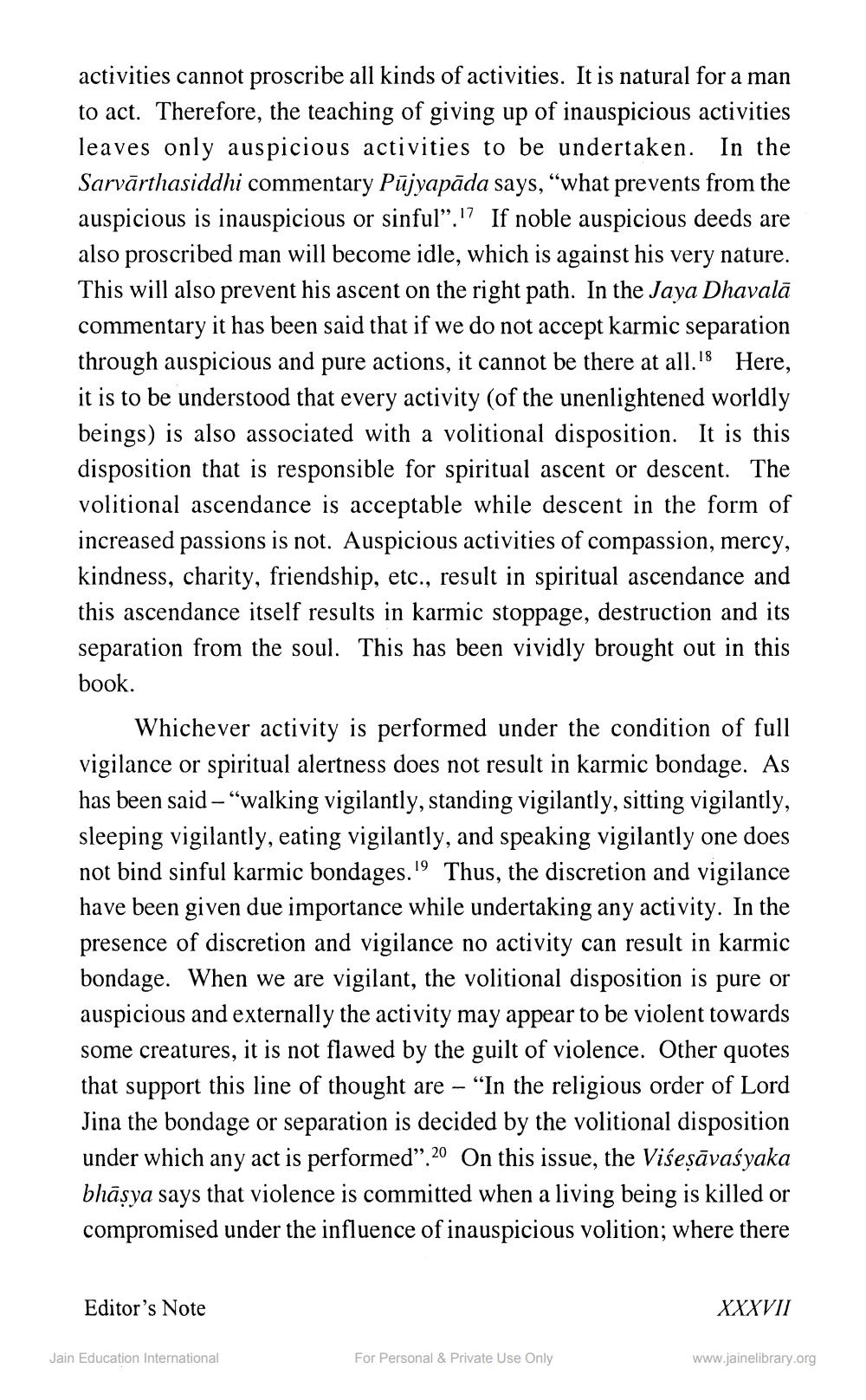________________
activities cannot proscribe all kinds of activities. It is natural for a man to act. Therefore, the teaching of giving up of inauspicious activities leaves only auspicious activities to be undertaken. In the Sarvārthasiddhi commentary Pujyapāda says, “what prevents from the auspicious is inauspicious or sinful". If noble auspicious deeds are also proscribed man will become idle, which is against his very nature. This will also prevent his ascent on the right path. In the Jaya Dhavalā commentary it has been said that if we do not accept karmic separation through auspicious and pure actions, cannot be there at all. 18 Here, it is to be understood that every activity (of the unenlightened worldly beings) is also associated with a volitional disposition. It is this disposition that is responsible for spiritual ascent or descent. The volitional ascendance is acceptable while descent in the form of increased passions is not. Auspicious activities of compassion, mercy, kindness, charity, friendship, etc., result in spiritual ascendance and this ascendance itself results in karmic stoppage, destruction and its separation from the soul. This has been vividly brought out in this book.
Whichever activity is performed under the condition of full vigilance or spiritual alertness does not result in karmic bondage. As has been said - "walking vigilantly, standing vigilantly, sitting vigilantly, sleeping vigilantly, eating vigilantly, and speaking vigilantly one does not bind sinful karmic bondages." Thus, the discretion and vigilance have been given due importance while undertaking any activity. In the presence of discretion and vigilance no activity can result in karmic bondage. When we are vigilant, the volitional disposition is pure or auspicious and externally the activity may appear to be violent towards some creatures, it is not flawed by the guilt of violence. Other quotes that support this line of thought are - "In the religious order of Lord Jina the bondage or separation is decided by the volitional disposition under which any act is performed".20 On this issue, the Viseṣāvaśyaka bhāṣya says that violence is committed when a living being is killed or compromised under the influence of inauspicious volition; where there
Editor's Note
Jain Education International
For Personal & Private Use Only
XXXVII
www.jainelibrary.org




